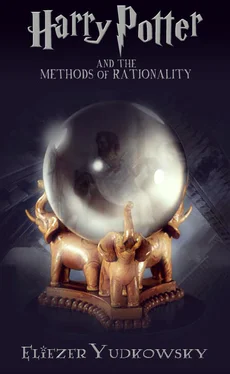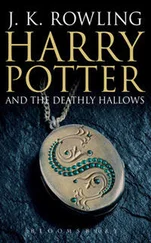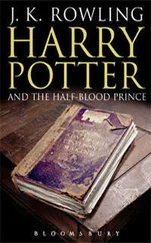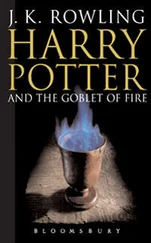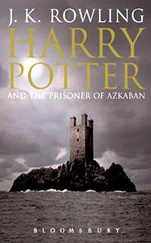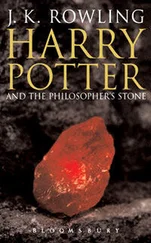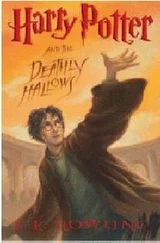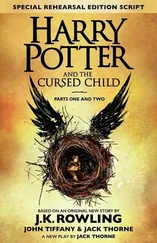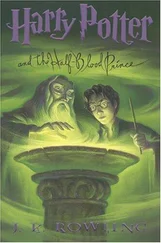The boy looked at her with strange, sorrowful eyes. "Can you not sneeze without the Headmaster's permission, Professor McGonagall? For I do promise to you that I have good reason to ask, and good reason to keep the question private."
"Please don't, Harry," she whispered.
"All right," Harry said. "One simple question. Please. Was the Potter family mentioned by name? Does the prophecy literally say 'Potter'?"
She stared at Harry for a while. She couldn't have said why or where she got the sense that this was a critical point, that she could not lightly refuse the request, nor lightly accede to it -
"No," she finally said. "Please, Harry, don't ask any more."
The boy smiled, a little sadly it seemed, and said, "Thank you, Minerva. You are a good woman and true."
And while her mouth was still open in utter shock, Harry Potter got up and left the office; and only then did she realize that Harry had taken her refusal as an answer, and the true answer at that -
Harry closed the door behind himself.
The logic had presented itself with a strange diamondlike clarity. Harry couldn't have said if it had come to him during Fawkes's singing, or maybe even before.
Lord Voldemort had killed James Potter. He had preferred to spare Lily Potter's life. He had continued his attack, therefore, with the sole purpose of killing their infant child.
Dark Lords were not usually scared of infant children.
So there was a prophecy about Harry Potter being dangerous to Lord Voldemort, and Lord Voldemort had known that prophecy.
"I give you this rare chance to flee. But I will not trouble myself to subdue you, and your death here will not save your child. Step aside, foolish woman, if you have any sense in you at all!"
Had it been a whim, to give her that chance? But then Lord Voldemort would not have tried to persuade her. Had the prophecy warned Lord Voldemort against killing Lily Potter? Then Lord Voldemort would have troubled himself to subdue her. Lord Voldemort had been mildly inclined not to kill Lily Potter. The preference had been stronger than a whim, but not as strong as a warning.
So suppose that someone whom Lord Voldemort considered a lesser ally or servant, useful but not indispensable, had begged the Dark Lord to spare Lily's life. Lily's, but not James's.
This person had known that Lord Voldemort would attack the house of the Potters. Had known both the prophecy, and the fact that the Dark Lord knew it. Otherwise he would not have begged Lily's life.
According to Professor McGonagall, besides herself, the other two who knew of the prophecy were Albus Dumbledore and Severus Snape.
Severus Snape, who had loved Lily before she was Lily Potter, and hated James.
Severus, then, had learned of the prophecy, and told it to the Dark Lord. Which he had done because the prophecy had not described the Potters by name. It had been a riddle, and Severus had solved that riddle only too late.
But if Severus had been the first to hear the prophecy, and disposed to tell it to the Dark Lord, then why would he also have told Dumbledore or Professor McGonagall?
Therefore Dumbledore or Professor McGonagall had heard it first.
The Headmaster of Hogwarts had no obvious reason to tell the Transfiguration Professor about an extremely sensitive and crucial prophecy. But the Transfiguration Professor had every reason to tell the Headmaster.
It seemed likely, then, that Professor McGonagall had been the first to hear it.
The prior probabilities said that it had been Professor Trelawney, Hogwarts's resident seer. Seers were rare, so if you counted up most of the seconds Professor McGonagall had spent in the presence of a seer over the course of her lifetime, most of those seer-seconds would be Trelawney-seconds.
Professor McGonagall had told Dumbledore, and would have told no one else about the prophecy without permission.
Therefore, it was Albus Dumbledore who had arranged for Severus Snape to somehow learn of the prophecy. And Dumbledore himself had solved the riddle successfully, or he would not have selected Severus , who had once loved Lily, as the intermediary.
Dumbledore had deliberately arranged for Lord Voldemort to hear about the prophecy, in hopes of luring him to his death. Perhaps Dumbledore had arranged for Severus to learn only some of the prophecy, or there were other prophecies of which Severus had remained innocent... somehow Dumbledore had known that an immediate attack on the Potters would still lead to Lord Voldemort's immediate defeat, although Lord Voldemort himself had not believed this. Or maybe that had just been a lucky stroke of Dumbledore's insanity, his taste for bizarre plots...
Severus had ended up serving Dumbledore afterward; perhaps the Death Eaters would not look kindly on Severus if Dumbledore revealed his role in their defeat.
Dumbledore had tried to arrange for Harry's mother to be spared. But that part of his plot had failed. And he had knowingly condemned James Potter to his death.
Dumbledore was responsible for the deaths of Harry's parents. If the whole chain of logic was correct. Harry could not, in justice, say that successfully ending the Wizarding War did not count as extenuating circumstances. But somehow this still... bothered him a great deal.
And it was time and past time to ask Draco Malfoy what the other side of that war had to say about the character of Albus Percival Wulfric Brian Dumbledore.
Chapter 47: Personhood Theory
There comes a point in every plot where the victim starts to suspect; and looks back, and sees a trail of events all pointing in a single direction. And when that point comes, Father had explained, the prospect of the loss may seem so unbearable, and admitting themselves tricked may seem so humiliating, that the victim will yet deny the plot, and the game may continue long after.
Father had warned Draco not to do that again.
First, though, he'd let Mr. Avery finish eating all of the cookies he'd swindled from Draco, while Draco watched and cried. The whole lovely jar of cookies that Father had given him just a few hours earlier, for Draco had lost all of them to Mr. Avery, down to the very last one.
So it was a familiar feeling that Draco had felt in the pit of his stomach, when Gregory told him about The Kiss.
Sometimes you looked back, and saw things...
(In a lightless classroom - you couldn't quite call it unused any more, since it'd seen weekly use over the last few months - a boy sat enshrouded in a hooded cowl, with an unlighted crystal globe on the desk in front of him. Thinking in silence, thinking in darkness, waiting for an opening door to let in the light.)
Harry had shoved Granger away and said, I told you, no kissing!
Harry would probably say something like, She just did it to annoy me, last time, just like she made me go on that date.
But the verified story was that Granger had been willing to face the Dementor again in order to help Harry; that she had kissed Harry, crying, when he was lost in the depths of Dementation; and that her kiss had brought him back.
That didn't sound like rivalry, even friendly rivalry.
That sounded like the kind of friendship you usually didn't see even in plays.
Then why had Harry made his friend climb the icy walls of Hogwarts?
Because that was the sort of thing Harry Potter did to his friends?
Father had told Draco that to fathom a strange plot, one technique was to look at what ended up happening, assume it was the intended result, and ask who benefited.
What had ended up happening as the result of Draco and Granger fighting Harry Potter together... was that Draco had started to feel a lot friendlier toward Granger.
Читать дальше
